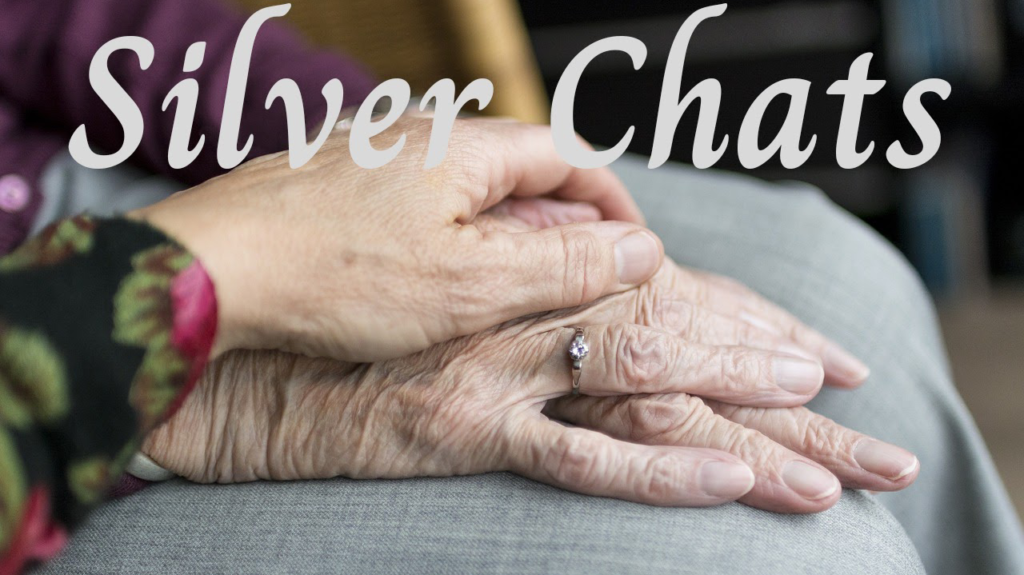Is it a fact or myth that we can’t control our weight as we age? Are we resigned to having thick middles and weak muscles? Are our days of svelt bodies past? I was overweight entering my 60’s but lost 40 pounds, so I know it’s possible. But I’ve also noticed a decrease in my strength. Can we combat these changes associated with aging holistically? Silver Chats believes we can.
Our body compositions change as we age, and we lose muscle mass. That composition change leads to fat storage. We also experience hormonal and metabolism changes. These simple physiological changes and our eating habits cause weight gain as we age. If we eat the same amount as we did when we were younger, we gain weight.
Is it a fact? Yes. Is it inevitable? No.
Holistic aging practices call for mindfulness with our bodies. Accepting our metabolism has slowed means adjusting our diet and activity levels. What is metabolism? It is how our bodies get energy from the food we eat. As we age, our bodies don’t metabolize nutrients as effectively. We become subjected to high glucose levels and decreased muscle mass. For women, we experience a drop in estrogen. This hormone seems to be the cause of increased belly fat in women. Other contributing factors are stress, alcohol consumption, and certain medications.
With all the factors lined out, are we doomed to being overweight and flabby? Acceptance of the changes associated with aging is part of holistic aging practices, but that doesn’t mean we choose to live unhealthily. We can make positive, healthy changes in our diet and lifestyle to help with weight gain and decreased muscle mass. We might not be able to reverse the aging process, but we can do things to slow it down and live our best lives.
I found it interesting to look at the statistics of blue zones, areas where people live the longest and have a high percentage of centenarians. There are similarities between them. Most eat a primarily plant-based diet, consume around 1200 calories daily, and have an active lifestyle. We could all take some pointers from those areas of the world.
https://www.ncbi.nlm.nih.gov/books/NBK298903
We need to take inventory of our food choices as we age, or we risk being overweight and having health-related issues like diabetes, weakened immune systems, and susceptibility to infection. Mindfully planning meals around fresh, unprocessed food is a start. Choose fresh fruit and vegetables. Snacks should be nuts and low-fat white cheeses. Consume whole grains and cook with olive oil. Cook primarily lean meats like chicken or fish and choose plant-based meals whenever possible. Stay away from processed foods, sugar, and alcohol. Look at the labels when you buy groceries. Choose foods with high percentages of dietary fiber, protein, and vitamins. Avoid foods with high percentages of saturated fats, sodium, and sugar.
Whenever possible, we recommend homemade everything. Bake your own fresh bread and crust. Make your jam, salsa, pizza sauces, and salad dressings. There are additives to almost everything we buy off the shelf at the grocery store. Many are high in calories and offer few nutritional benefits. Ultra-processed foods have been linked to cancer by causing unnecessary weight gain and obesity, gastrointestinal, respiratory, and cardiovascular disorders. (https://www.ncbi.nlm.nih.gov/pmc/articles/PMC6146358/)
There are sample diets that can make changes easier. The Mediterranean Diet is a prime example (https://www.ncbi.nlm.nih.gov/pmc/articles/PMC7019245/). It is associated with lower chronic diseases, cardiovascular risk, and premature death. It focuses on fresh produce, lean proteins, and healthy fats and limits processed and refined foods. It is based on overall eating habits and provides rich, nutrient-dense foods. It’s a great place to start making changes in aging diets.
It’s not just about what we eat. It’s also about how much and our level of activity. The daily caloric intake for our age group, over 60, should be around 1500-1800 calories. That means foods like cakes, ice cream, pastries, fast food (burgers, fried chicken), candy, processed meat (bacon, salami), and fried foods are all high-calorie, unhealthy food choices to be avoided. Watch out for serving sizes. Our societal norms now look at super-sized portions as being acceptable and a contributing factor to weight gain. Eat slowly; studies show chewing food thoroughly can fill you up and reduce your intake.
The key to weight management is movement. To lose weight and maintain it, you need to move more than you eat. I take a mental food inventory at night in bed. I review what I ate during my day and how much I exercised. If I find an imbalance, I adjust it the next day. Taking a daily proactive role avoids weight gain and keeps me mindful of my dietary intake and exercise level.
Finally, and most importantly, is self-reflection. I am not a fan of controlled dieting. I have yo-yo dieted for most of my life. Keto, Adkins, Paleo, South Beach, etc, I’ve tried them all. Here is the thing: each has you alter your food choices temporarily. It wasn’t until I took a psychological approach to my relationship with food that my habits changed permanently. I am an emotional eater. I also use food as a reward. Food is sustenance, and our bodies need it to survive. My habits changed when I looked at food as fuel and energy rather than an emotional crutch. We can’t make positive, healthy choices if our mindset doesn’t match our actions. Keep a food diary and look at what you eat and why. It’s a game-changer.
Aging doesn’t translate to automatic weight gain. If we take the steps required to change our diet, be mindful of our weight and exercise, and develop daily holistic aging practices, we open the door to endless possibilities in aging. Growing older doesn’t guarantee weight gain; our mindset and habits do. Holistic aging practices call for embracing change and living our best lives. Silver Chats encourages taking the steps toward positive, healthy aging!
